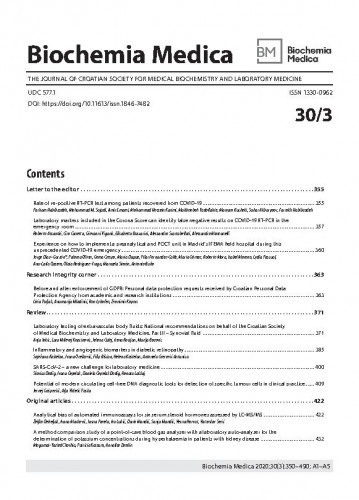The new corona virus SARS-CoV-2 (Severe Acute Respiratory Syndrome Corona Virus 2) causes a disease called COVID-19 (coronavirus disease 2019), that develops mostly in subjects with already impaired immune system function, primarily in the elderly and in individuals with some chronic disease or condition. The reasons for this should be sought in the processes of aging and chronic latent inflammation, i.e. immunosenescence and inflammaging. Laboratory medicine specialists are currently focused on proving the presence of the virus and defining biomarkers that would enable the prediction of disease progression. For now, it has been shown that useful biomarkers can include general biomarkers of inflammation (parameters of complete blood count, C-reactive protein, interleukin-6, procalcitonin), biomarkers of myocardial damage (high sensitivity troponin I/T, B-type natriuretic peptide, and N-terminal B type natriuretic peptide), and vascular biomarkers (D-dimer, prothrombin time, fibrinogen). Their actual diagnostic specificity, sensitivity and predictive value need to be tested on a larger number of subjects. In addition, it is important to find and evaluate specific biomarkers of immunosenescence.
Sažetak

 Biochemia medica : the journal of Croatian Society for Medical Biochemistry and Laboratory Medicine : 30,3(2020) / glavna i odgovorna urednica Daria Pašalić.
Biochemia medica : the journal of Croatian Society for Medical Biochemistry and Laboratory Medicine : 30,3(2020) / glavna i odgovorna urednica Daria Pašalić.